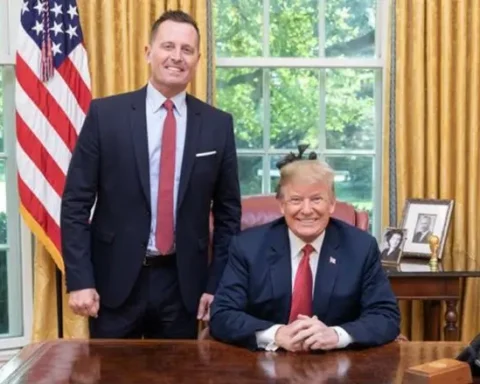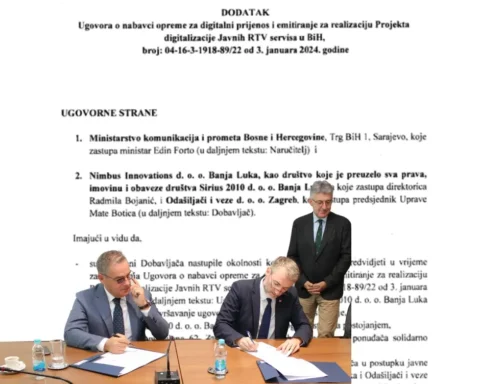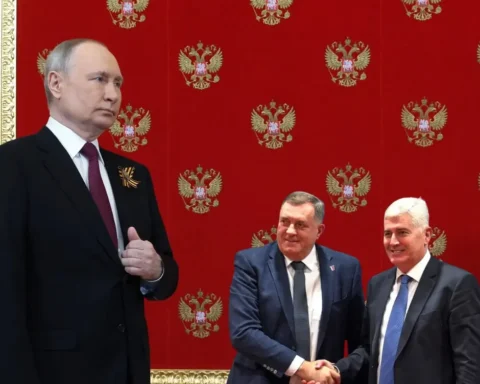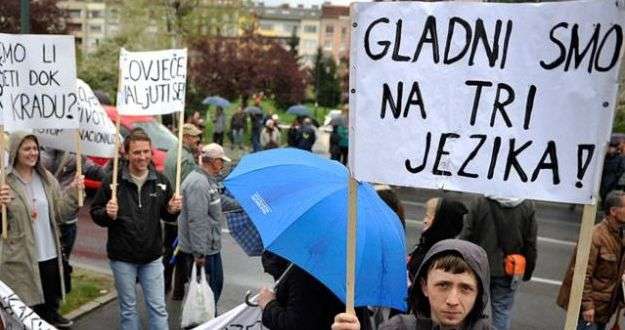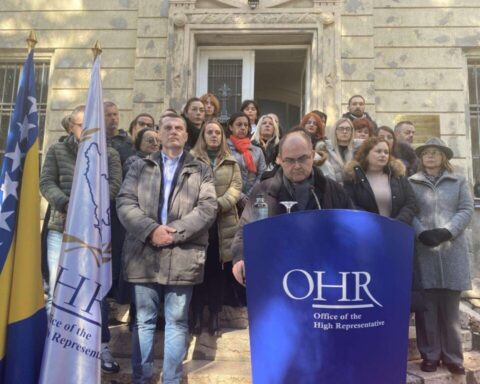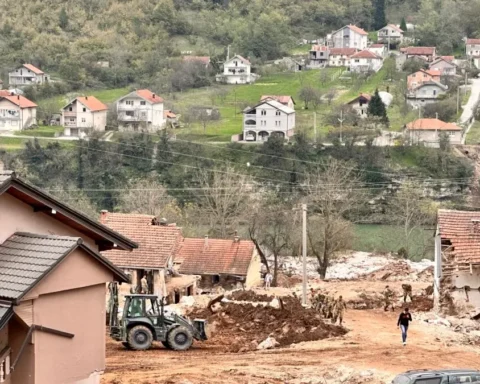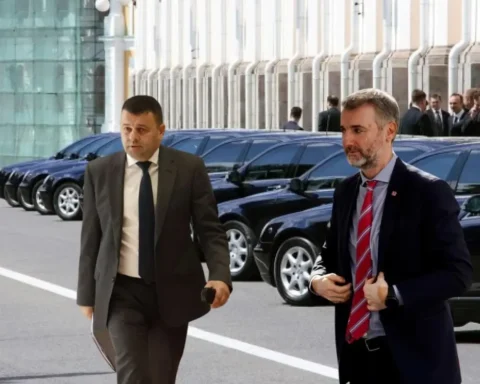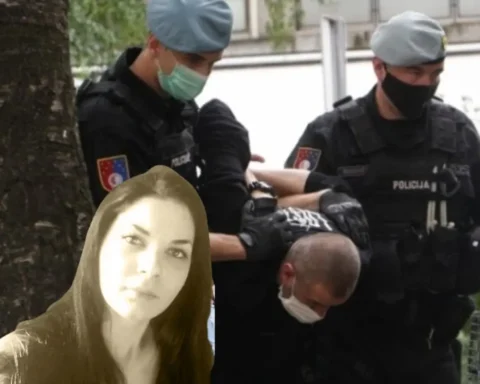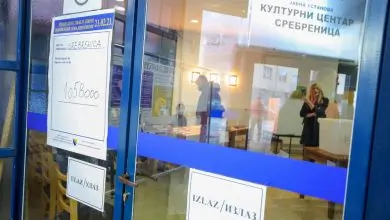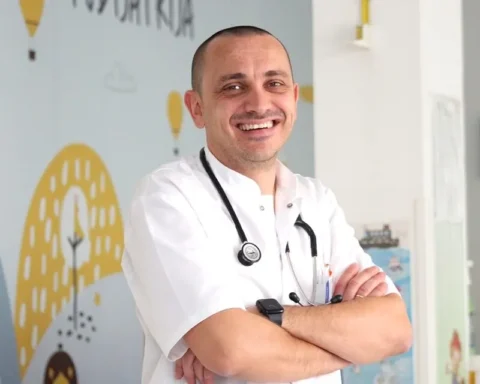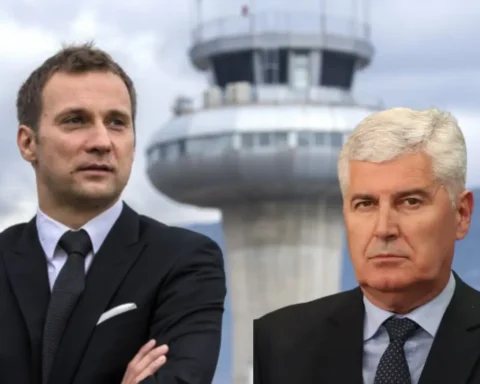Everything you need to know about one of the most unsuccessful European countries, but you were ashamed to ask.

If you are a foreign diplomat, and you are coming to Bosnia and Herzegovina, you have to go through a small course of phrases that we believe will ‘work’ best at this moment. Piece of cake. Just like in marketing. So, let’s go in order:
We express our concern!
It is a favourite phrase of the senior (high and former) representative Valentin Intzko. It basically means, ‘for what you do to each other, we don’t give a damn’, but we have to show that we are there, in the name of Europe. And everything goes into service.
Favourable conditions should be created for foreign investors!
This means that you need to agree on everything, but in a way that suits you and the national cartels in power: so buy cheap, sell expensive. It doesn’t matter that it is impossible to harmonize energy regulations with European ones – order them to practically abolish coal mines, so that the miners stay on the street, and then buy it all cheaply. For small hydropower plants, and for wind power, it’s the same thing. You need to make your own, and agree with local or somewhat higher instances behind the scenes. It is definitely their favourite sport. Because the land can be sold. Residents, not so much, but they can, at best, go to Western Europe as cheap labour.
We stand firmly on the European path of Bosnia and Herzegovina and we are the guarantor of stability for European integration.
A very important thing. So, as they are, and they have shown that they did not deserve society or the state, and no one needs them. That is why it is important that tensions are maintained: that will not be lacking. Serbs like to rattle with weapons, Croats like to wave money, and Bosniaks picked up the worst from both. Essentially, Bosnia and Herzegovina can only exist as a civil state, but there are two dangers. The first is that our European countries are, in fact, integrated super national creations. The second circumstance is even more difficult: even if it became a civil state, the majority in it would practically be Muslims. What kind of civil state is that then? We should not be interested in civil society here, but we must not forget that we keep repeating that we are for it. We are most interested here in a tribal society under truce.
We support progressive forces and for us the segment of the political spectrum is equally important.
The civil society project in BiH can only be implemented by centre and left forces. However, one should be very careful not to support the former communists, so we can avoid events that happened recently in the elections in Graz. So their left is divided, and it is good that it is so. In various ways, the idea was compromised by Milorad Dodik in Republika Srpska, who openly switched from the Social Democrats to supporting war criminals, because of his criminal activity. But he is the most cunning of them. He works face to face, cash in hand. No voucher. In the Federation, the idea was buried mostly by Zlatko Lagumdžija, the SDP president. He wanted to create a small circle of red oligarchs within the Bosniak corps, but it didn’t work out because the SDA doesn’t like to share the spoils. That is why it is important for the SDA to survive: those in the normal state of BiH, they would not have more than 5% of the electorate. Practically all the political culture here grows out of the logic of the former League of Communists. And that’s why it’s dangerous. HDZ BiH is, for example, the Communist Party 2.0. The bigger the communists, the bigger the nationalists now. Dragan Čović was a Yugoslav on the 1991 census. It’s a card you can always play.
Regularity and ensuring a democratic electoral process is our highest priority.
Always keep in mind the oath in the election. Here, half of the voters, of course, do not go to the polls, or have left the country. The focus should be on the other half. There are fewer and fewer of those who have the illusion that this could ever become a normal state, and their numbers are dwindling every day. So the ‘main’ ones are those who work in institutions: according to certain data, they are 56% of the total number of employees. Which means it is possible to hold power here with about 25%. This is ideal, because there is no critical mass for change, and no real legitimacy of the government. That hybrid in which a criminal society is created in which the judiciary and the police are accomplices, and national political entities, aided by religious communities, is the real result. Our partners are the ones who steal the elections and the proof of their incompetence. And an excuse for us why we are here without having to do practically anything. If Dodik really reaches for the Russian volunteers and goes to war, we should invoke democratic principles until we get the majority of our forces out. Then they should be left to fight each other again. They do that, of course, every forty years, and thirty years have passed since the last war.
For us, the most important thing is an independent judiciary.
Do everything you can to turn the courtrooms, install cameras, put new furniture in the offices, full security, but be careful: every big fish is connected to a bigger one. Dodik and Čović with the Russians and their transaction channels, and the Bosniak tycoons with one of them large banks, in Vienna or the Middle East. So, if you touch the wales, you directly touch (our) capital. If you need to chase someone, chase mice, let it be heard that as many lawsuits are being initiated, because the legislation has certainly created chaos in which, practically, everything is possible. In that sense, the judiciary should be corrupt, and politicized, and at the same time we should constantly fuel the story that we want reforms.
And follow us for more (political) advice. It is the imbecility that opens even the most difficult door.


